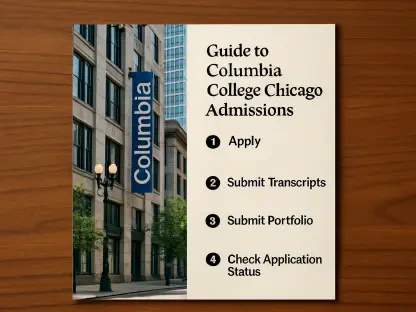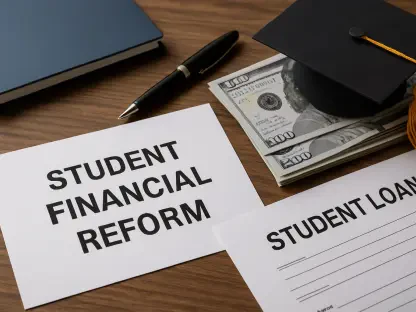The question of whether the federal government should exert control over higher education has become a flashpoint in American policy debates, particularly as recent actions by the Trump administration have sought to shape college operations through funding mechanisms and policy mandates, raising concerns about academic freedom and autonomy. With issues like institutional independence and political influence at stake, public sentiment offers a revealing lens into this complex issue. Many Americans are grappling with the implications of federal overreach, questioning whether such involvement strengthens or undermines the integrity of higher education. As colleges and universities navigate pressures from funding incentives and penalties, the balance between governmental oversight and independent governance remains precarious. This article delves into the nuances of public opinion, exploring the widespread resistance to federal control, the deep political divides over specific policies, and the controversies surrounding recent administrative actions that challenge the traditional boundaries of academic independence.
Public Sentiment Against Federal Intervention
A significant portion of the American public firmly opposes federal control over critical elements of higher education, such as admissions processes, faculty recruitment, and curriculum design. According to recent surveys, an overwhelming 70% of respondents disagree with the idea of the government stepping in to dictate these areas, particularly to block content deemed inappropriate. This resistance is notably bipartisan, cutting across political affiliations with 84% of Democrats, 75% of independents, and even 58% of Republicans expressing disapproval. Such a broad consensus signals a deeply rooted belief in the importance of safeguarding academic freedom. The public appears to view colleges and universities as spaces that should remain insulated from direct governmental influence, prioritizing the ability of these institutions to make independent decisions that reflect their unique missions and values over centralized mandates that could stifle diversity of thought.
This opposition to federal overreach also reflects a broader cultural appreciation for the role of higher education as a bastion of intellectual exploration. Beyond the raw numbers, the sentiment suggests a collective unease with the potential for political agendas to infiltrate academic environments, which many see as vital to fostering critical thinking and innovation. While concerns about specific campus issues persist, the majority opinion holds that solutions should emerge from within institutions rather than through top-down directives. The strength of this resistance across the political spectrum indicates that any move toward greater federal control would likely face significant public backlash, as it clashes with the principle of self-governance that has long defined American higher education. This public stance serves as a critical backdrop to understanding the debates over specific policy actions currently unfolding.
Partisan Divides in Policy Evaluation
While a general aversion to federal control unites many Americans, sharp political divisions surface when evaluating the Trump administration’s handling of higher education policies. Polls indicate that 56% of the public disapproves of the current approach, but this figure masks a stark partisan split: 90% of Democrats voice dissatisfaction, while 83% of Republicans express support. This polarization becomes even more pronounced in attitudes toward punitive measures, such as withholding federal funds from institutions that fail to align with certain political objectives. A substantial 73% of Democrats reject this tactic as an overstep, whereas 51% of Republicans see it as a justified means of ensuring accountability. These contrasting views reveal how political identity often shapes perceptions of federal involvement, even when there is agreement on the broader principle of institutional autonomy.
Delving deeper into this divide, it becomes clear that the disagreement hinges on differing interpretations of the government’s role in education. For many Democrats, federal actions risk eroding the foundational independence of academia, potentially turning colleges into battlegrounds for ideological control. On the other hand, Republican support often stems from a belief that federal oversight can correct perceived imbalances, such as liberal bias in university settings. This tension highlights a fundamental challenge: while the public largely agrees on limiting federal overreach in theory, the practical application of policies reveals conflicting priorities. As these partisan perspectives continue to clash, they complicate the path toward a unified approach to balancing governmental influence with the need to preserve the integrity of higher education systems across the nation.
Scrutiny of Specific Policy Measures
Recent policy moves by the Trump administration, particularly the use of federal research funding as a tool to enforce compliance, have sparked considerable public skepticism and debate. Actions like suspending funding to prominent institutions such as Harvard and UCLA over allegations of inadequate responses to campus antisemitism have drawn mixed reactions. Notably, 58% of Jewish Americans oppose these funding cuts, and 72% suspect that antisemitism is being used as a pretext to penalize colleges for other reasons. Despite widespread concern about antisemitism—72% of Jewish Americans acknowledge it as a significant issue on campuses—there is a prevailing doubt about the sincerity of the administration’s motives. This nuanced public response suggests a clear distinction between recognizing a problem and endorsing heavy-handed federal solutions that may carry hidden agendas.
Beyond funding suspensions, the public’s wariness extends to the broader implications of using financial leverage to influence academic policy. Many view these measures as a slippery slope toward greater governmental encroachment, where genuine issues risk becoming politicized tools for control rather than subjects of collaborative resolution. The skepticism is compounded by the perception that such actions disproportionately target institutions based on political rather than educational criteria, undermining trust in the fairness of federal oversight. As these controversies unfold, they underscore a critical public concern: while problems like antisemitism demand attention, the approach to addressing them must respect the autonomy of colleges and avoid exploiting serious issues for broader political gain. This delicate balance remains a focal point of contention in the ongoing discourse.
Tensions Over Funding Compacts and Independence
Another flashpoint in the debate over federal influence is the administration’s strategy of offering compacts to colleges, linking priority access to research funding with specific policy concessions like tuition freezes or the dissolution of campus units perceived as ideologically hostile. Although many institutions have declined these offers, responses are still pending from notable universities such as the University of Texas at Austin and Vanderbilt University. This approach raises profound questions about the trade-offs between financial stability and academic independence, as colleges must weigh the immediate benefits of federal support against the long-term risks of ceding control over their internal operations. The public watches closely, aware that such compacts could set precedents for how much influence the government can exert through economic incentives.
The implications of these funding compacts extend beyond individual institutions to the broader landscape of higher education. If accepted, they could normalize a model where federal priorities dictate academic policies, potentially reshaping the values and missions of universities in ways that align with governmental rather than educational goals. Public concern centers on the erosion of self-governance, as these arrangements might pressure colleges to prioritize compliance over innovation or diversity of thought. Meanwhile, the hesitation of many institutions to engage with these offers reflects a broader resistance to compromising their autonomy, even in the face of financial allure. As negotiations continue, the outcomes will likely serve as a litmus test for the resilience of academic independence against federal influence, shaping future debates on the appropriate boundaries of governmental involvement.
Reflecting on Paths Forward for Higher Education
Looking back, the discourse surrounding federal control over higher education reveals a multifaceted public stance that resists overreach while grappling with partisan interpretations of policy. The majority sentiment consistently favors the preservation of institutional autonomy, with many Americans expressing unease about governmental actions that seem driven by political motives rather than educational merit. Specific measures, such as funding suspensions and policy compacts, are met with skepticism, as they often appear to blur the line between addressing legitimate concerns and exerting undue influence. Moving forward, a balanced approach could involve fostering dialogue between federal authorities and academic leaders to address pressing issues like campus antisemitism without compromising independence. Encouraging transparent, collaborative frameworks for funding and policy-making might help rebuild trust, ensuring that higher education remains a space for free inquiry while addressing societal challenges through mutual respect rather than unilateral control.









